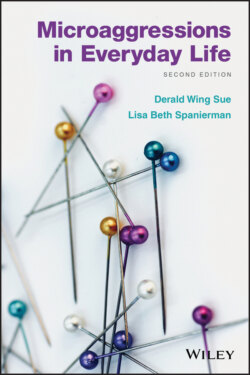Читать книгу Microaggressions in Everyday Life - Derald Wing Sue - Страница 9
Example 1.1
ОглавлениеStanding before his classroom, Charles Richardson, a White professor, asked for questions from the class. He had just finished a lecture on Greco‐Roman contributions to the history of psychology. An African American male student raised his hand.
When called upon, the student spoke in a frustrated manner, noting that the history of psychology was “ethnocentric and Eurocentric” and that it left out the contributions of other societies and cultures. The student seemed to challenge the professor by noting that the contributions of African, Latin American, and Asian psychologies were never covered.
The professor responded, “Robert, I want you to calm down. We are studying American psychology in this course, and we will eventually address how it has influenced and been adapted to Asian and other societies. I plan to also talk about how systems and theories of psychology contain universal applications.”
Rather than defusing the situation, however, Professor Richardson sensed that his response had raised the level of tension among several students of color. Another Black male student then stated, “Perhaps we are looking at this issue from different perspectives or worldviews. Just as language affects how we define problems, maybe we all need to evaluate our assumptions and beliefs. Maybe we are ethnocentric. Maybe there are aspects of psychology that apply across all populations. Maybe we need to dialogue more and be open to alternative interpretations.”
Throughout the semester, the professor had sensed increasing resentment among his students of color over the course content (he could not understand the reasons), and he welcomed the opportunity to say something positive about their classroom contributions. He responded, “Justin [who is a Black student], I appreciate your exceptionally thoughtful and intelligent observation. You are a most articulate young man with good conceptual and analytical skills. This is the type of nonjudgmental analysis and objectivity needed for good dialogues. We need to address these issues in a calm, unemotional, and reasoned manner.”
To the professor's surprise, Justin and several other students of color seemed offended and insulted by the praise.
